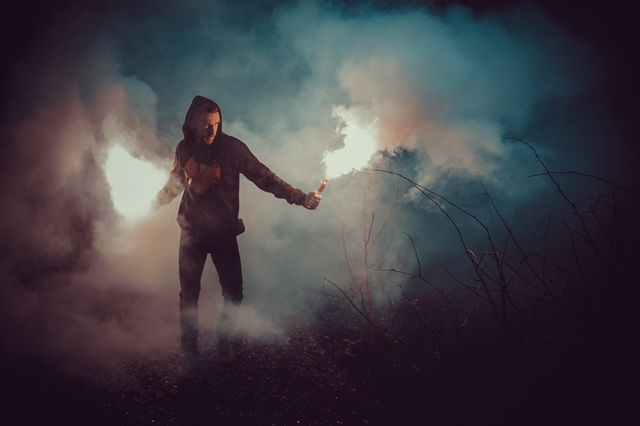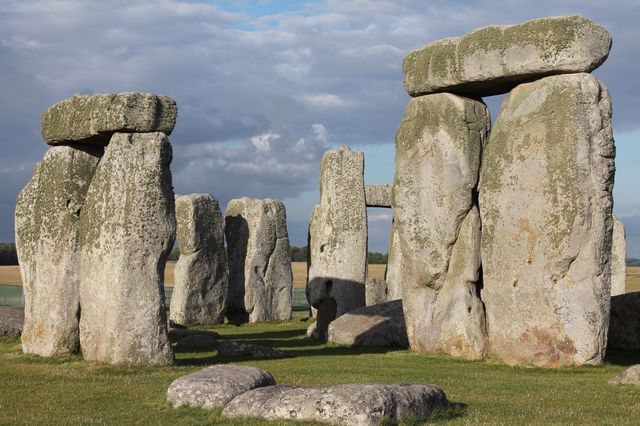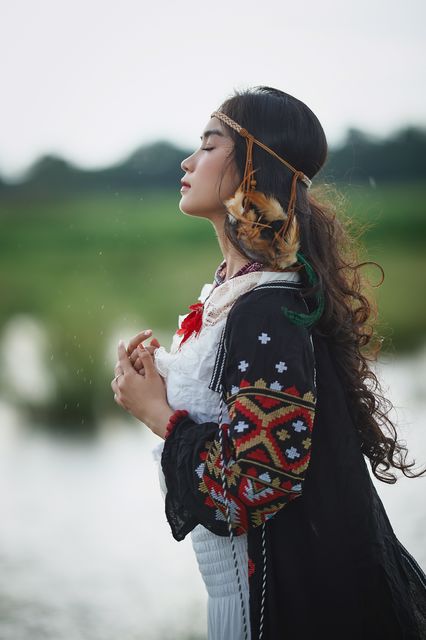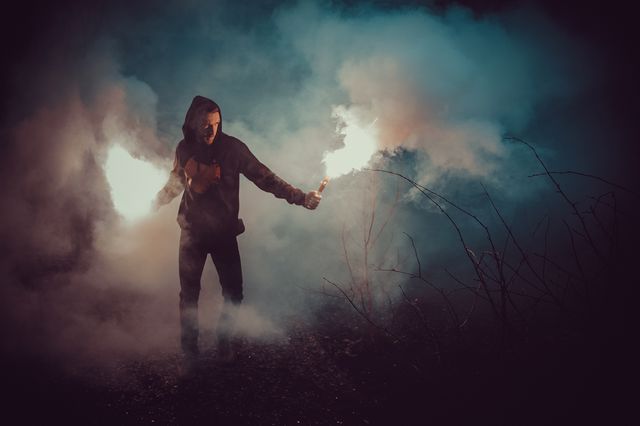
To be spiritual is to have an abiding respect for the great mysteries of life—the profound distinctiveness of other souls, the strange beauty of nature and the animal world, the ineffable complexity of our inner selves, the unfathomable depths of the Inexplicable One. The wisdom traditions challenge us to live within a cloud of unknowing.
Frederic and Mary Ann Brussat, Spiritual RX: Prescriptions for a Meaningful Life
Joining the practice of awe, which we considered in a previous post, is the spiritual practice of mystery. Awe could very well be a response to being in the presence of mystery. The word, mystery, comes from a word that means “to close or to shut.” We know something is there. We know we are in the presence of something. But it is closed or shut off from us.
And so, we try to see what’s there. Mystery has been reduced to something to solve. “The source of this virus is a mystery…Why that person acted that way is a mystery.” Words like that are invitations to solve the mystery.
We call them mystery novels. For hundreds of pages, we follow the twists and turns so that we can get to the end of the story and solve the mystery. When you are on this side of mystery, you are challenged. You are energized. You are drawn in. Interesting. Not knowing what will happen is an invitation in reading, but not so much in so many other areas of life.
One of the greatest gifts we have is the ability to think deeply and critically. We do this with the world around us. We do this with our own minds and feelings. We do this with our religious and spiritual lives. Religions have been around for thousands of years, and people are still writing books and having discussions about the beliefs and practices of these religions.
Since the Enlightenment, especially in the Western world, there is a great deal of emphasis on reason.
If you cannot reason or verbalize something, well, it might not be true or even real. If you have explained or described something, you have exhausted it. If there is something about your faith that you cannot fully grasp or understand, it could lead to a crisis of faith.

This desire to know and understand is not a bad thing. It is not just knowing for knowing’s sake. You have encountered something powerful and meaningful. You have encountered something that makes you feel awe. You have encountered something that is a mystery. Doesn’t it make sense that learning more about it can add to the awe? Wouldn’t learning all you can about the mystery of faith add more meaning to your life?
These questions become the origin of doctrines and beliefs and creeds. Consider some of the foundational doctrines of the Christian faith. Just sit with them a moment as I describe them. The Trinity: God is one and God is three persons. The Incarnation: God becomes human and lives among us. Jesus: fully human and fully divine. Sadly, these doctrines have become descriptions and explanation of ideas and propositions that we are encouraged to affirm and accept. The real presence of Christ in the Sacrament of Communion.
But what if these amazing images are really invitations to enter in and wonder about and live out of the mystery of the faith? What if our reflections on these mysteries inform the way we shape our living? What would it mean to live with the mystery instead of reducing the mystery to ideas? Writing about the Trinity, on person has said that our response to this doctrine should not be understanding or knowledge. Our response should be worship.
There are many things in this life that we do not fully understand, but that does not mean they are less real or true.
In fact, many of the things in life that give meaning and texture and joy are things that we do not fully understand. They are things that we will never fully understand. They are mystery.

When I work with couples in counseling, it is not unusual for them to think that they know each other really well. But knowing each other really well is not the same as knowing each other fully. These couples are struggling because they believe that the pictures they have of each other are mostly full and complete. So when they encounter something that doesn’t fit the picture, they consider it to be a problem, instead of something new and exciting and challenging to learn about this amazing person with whom they share a life.
Part of the growth for these couples is realizing that they may be relating to the picture they have formed of their partner, instead of the person sitting across from them. It can be freeing to realize that there is still so much that we don’t know about our partner. And that’s okay. It becomes an invitation to be present and enter into the mystery of the person standing before you.
If it true that any person in our lives contains an element of mystery, it will certainly be true for the mysteries of the faith like God, Jesus, Spirit, Trust.
What are some ways that we can practice mystery?
Perhaps there are some ways we are practicing, and we don’t even realize it. When you encounter a funeral procession while driving, what do you and other drivers do? You pull over and stop. Perhaps you do it for safety reasons. Maybe it is a sign of respect. Perhaps you could use those few moments to reflect on the vast mystery of life…and death.
I have a friend who makes the sign of the cross whenever she hears a siren. Even in the middle of a conversation, she will make the sign. The conversation will continue but you can tell that, for a few moments, her mind is also on those whose lives are being impacted by the event that is represented by the siren.
Learn to be comfortable with this phrase: I DON’T KNOW.
In some situations, “I don’t know” can be an invitation to set aside, for a moment, well-established points of views and opinions. The words can also be an invitation to be open to the process, to new possibilities and alternatives. “I don’t know” can be an invitation to let things happen and unfold, to consider and to reflect. Practice saying “I don’t know,” even in situations where you feel a sense of certainty. For many in our world, saying “I don’t know” is an acknowledgement of a shortcoming or failure. Can we see “I don’t know” as an invitation to wisdom?
Black is often a color associated with mystery. Black absorbs light but does not reflect it. Pick a day to wear something black, and use it as an invitation to look for and reflect on the mysteries you encounter that day…in the world around you and in your own mind.

With the counseling couples I mentioned earlier, one of the exercises I do with them is have them face each other and for 3-5 minutes, simply look at each other. Don’t stare. Just look, gaze, take in the other person. The responses are amazing. Initially, there may be some discomfort, which is interesting. People who have been together for years are uncomfortable just looking at each other. Gradually, you can see their faces soften. You can tell they have moved into a deeper level of looking.
If couples can lose the sense of mystery, it makes sense that we can lose appreciation for the mystery of other people. Here is a challenge. Imagine someone who is very different from you: ethnically, religiously, political, economically. This could someone who is so different that you have deep disagreements with them on various issues.
Can you feel how you picture of them reduces your openness to them? Can you intentionally look for the mystery in them? Can you wonder what you don’t know about them? Can you feel the invitation of “I don’t know” the way we described it above?
Filmmaker J. J. Abrams says, “Maybe there are times when mystery is more important than knowledge…Mystery as a catalyst for imagination.” I look forward to hearing how you experience the spiritual practice of mystery.
